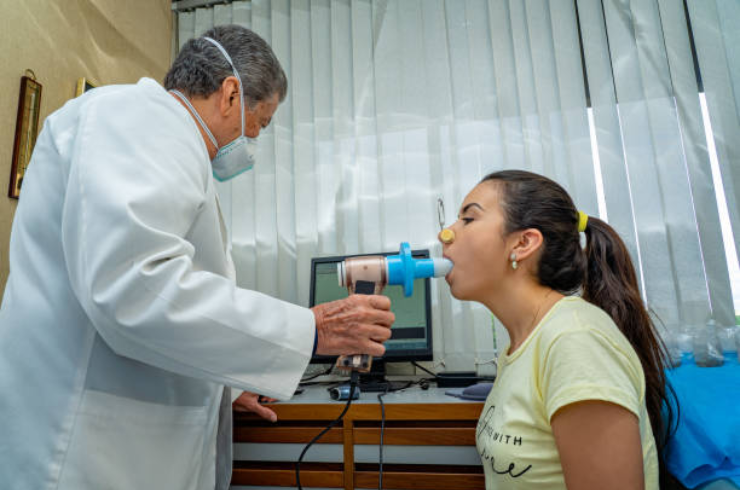Pulmonary Rehabilitation

Pulmonary rehabilitation is a specialized program designed to improve the quality of life for individuals with chronic respiratory diseases such as COPD, asthma, interstitial lung disease, and pulmonary fibrosis. It combines exercise training, education, and support to help patients manage symptoms, increase lung function, and enhance overall physical and mental well-being.
Tailored Exercise Programs
Pulmonary rehabilitation focuses on improving a patient’s physical endurance and strength through customized exercise regimens. These exercises, which include breathing exercises, strength training, and aerobic activities, help improve lung capacity and reduce breathlessness, allowing patients to perform daily activities with greater ease.
Patient Education
Education is a key component of pulmonary rehabilitation. Patients learn about their respiratory condition, medication management, breathing techniques, and strategies to conserve energy. This knowledge empowers individuals to take control of their health, recognize early signs of exacerbations, and avoid triggers that can worsen symptoms.
Symptom Management and Psychological Support
In addition to physical therapy, pulmonary rehabilitation addresses anxiety, depression, and other emotional challenges associated with chronic lung diseases. By combining psychological counseling with physical training, patients develop better coping mechanisms, leading to a more positive outlook on managing their condition.
Long-Term Benefits
Pulmonary rehabilitation has been shown to reduce hospital admissions, enhance physical activity levels, and improve overall health and stamina. By strengthening the lungs and body, patients can enjoy a more active and independent lifestyle, with fewer respiratory symptoms and complications.
Our comprehensive pulmonary rehabilitation program is designed to provide individualized, holistic care that promotes long-term respiratory health and well-being.